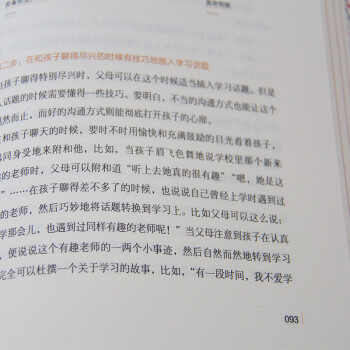热门推荐商品
-
神奇的逻辑思维游戏书 5-13岁提升孩子逻辑思维训练
¥22.50
-
正面管教 修订版 如何不惩罚不娇纵有效管教孩子 育儿百科 最温柔的教养 樊登 早教书
¥19.00
-
一本书读懂中国茶
¥24.90
-
中国国家地理:最好的时光在路上
¥24.90
-
正面管教儿童行为心理学
¥19.00
-
正面管教男孩100招(养育男孩全书)父母的语言话术
¥18.00
-
陪孩子度过7~9岁叛逆期(7-9岁关键养育 叛逆不是孩子的错 男孩女孩自驱型成长)
¥16.30
-
女生呵护指南
¥39.00
-
西尔斯怀孕百科
¥41.50
-
协和医院专家教你吃对不生病:糖尿病吃什么宜忌速查
¥14.90
- 商品名称:Natural History(9 自然史第9卷)
- 商品编号:12158417
产品特色
在已探知的星球中,唯地球有人类。人类社会和自然界构成了这颗星球的整个世界。人类来源于自然,依赖于自然,不断地探索自然,了解自己从何而来,向何而去?为什么在这万物共生的自然界脱颖而出,成为这个世界的主宰?又怎样与这个世界大家庭和睦相处,适应客观发展?……只有了解过去,才能更好地认识现在;懂得了过去和现在,才能主动地面对未来。历史是最好的教科书,在《地球简史》《人类简史》《时间简史》等纷纷面世的当代,人们不由地把目光又投向260多年前就诞生了的《自然史》,这部洋洋数百万字的旷世巨著,开辟了科学史作的先河,它从行星到地球,从空气到海洋,从动物到人类,……天、地、生、人,无所不包,海、陆、空,面面俱到,是一部记述自然的百科全书。书中全面论述了地球理论和地球历史,展现了风、火、水、潮、雷、震(地震)、光、热等各种自然现象;对人和生物的论述更是生动形象,丰富多彩。从生命的起源、器官的发育、青春期的特点,到机能的退化,直至死亡,把人类生息繁衍的过程讲得有声有色。对生物,特别是动物的描绘投下了重重笔墨,占据了大量篇幅,天上飞的,地上长的,野生的,驯养的,食肉的,食草的,大到熊、马,小至鼠、兔,畜、禽,鸟、兽,花、草、树、木,样样俱全,活灵活现,既有理性,又有情趣,好像无论哪种野性的动物都可以成为人类的宠物和朋友。法国著名思想家卢梭是这样评价的:“布封以异常平静而又悠然自得的语言歌颂了自然界中所有的重要物品,呈现出造物者的尊严与灵性。他具有那个世纪最美的文笔。”
万物皆有道,自然最奇妙。几乎所有涉及自然的事物都可以从《自然史》汲取营养,得到启示。读这类名著,既能增长知识,丰富阅历,又能赏心悦目,闲情逸致。即使历史已过去了几百年,社会发生了巨变,也未失去这部历史巨著的价值和魅力。这就是一部不朽之作的历史地位。布封在书中提出“物种可变”和“进化”的思想,被生物进化论创始人达尔文称为“以现代科学眼光对待这个问题的第一人”。
哲语说,文如其人。《自然史》的作者布封,全名乔治,路易,勒克莱尔.布封(Georges-Louis Leclerc,Comtede Buffon,1707-1788),如同他的不朽著作一样,也有一部不寻常的经历。他生于法国,自幼喜好自然科学,特别是数学。1728年法律专业毕业后,又学了两年医学。20岁时就先于牛顿发现了二项式定理;26岁成为法兰西科学院机械部的助理研究员,翻译并出版了英国博物学者海尔斯的著作《植物生理与空气分析》和牛顿的《微积分术》;1739年,32岁的他转为法兰西科学院数学部的副研究员,并被任命为“巴黎皇家植物园及御书房”的总管;1753年成为法兰西科学院院士。他用40年的时间写出了长达36卷的《自然史》,后又由他的学生整理出版了8卷,共44卷。此书一出版,就轰动了欧洲的学术界,各国很快有了译本。1777年,法国政府给布封建了一座铜像,上面写着:“献给和大自然一样伟大的天才。”这是对布封的崇高评价。
《自然史》原著为法文,这里出版的是英国学者James Smith Barr在1797-1807年翻译的英文版10卷册,选取的是原著中最精华的部分。发行这样的英文版高级作品、高级读物,就像外文书籍、外文刊物一样,自然面对的也是高水平的读者和馆藏者,希望他们既可以接近原汁原味地欣赏原著,感受自然的魅力,受到自然科学和文学艺术的熏陶,同时又能自然而然地提高英文素养和写作水平。在广大知识分子外语水平普遍提高的今天,这样的科学传播形式也许会受到越来越多读者的青睐。
内容简介
布封是18世纪法国著名的博物学家和作家。他坚持以唯物主义的思想看待地球与生物的起源和发展,被誉为“和大自然一样伟大的天才”。《自然史》是一部博物志,书中以大量的科学观察为基础,从唯物主义的角度对自然界的各种现象做了详细的描述。书中提到的“物种可变”和“进化”的思想对当时的社会具有积极的启蒙作用,也对后来达尔文提出“物种起源”与“进化论”产生了深远影响。
《自然史》原著为法文,共44卷。本版为英国学者James Smith Barr在1797-1807年翻译出版的10卷册,是原著中*精华的部分,主要包括地球的理论、动物史、人类史、家畜驯养史,并简单介绍了矿物和植物等内容。
《Natural History(9 自然史第9卷)》可供生物学、生态学、地质学等专业的高校师生和相关科研人员以及博物爱好者阅读。
目录
The LorisThe Javelin Bat
The Serval
The Ocelot
The Margay
The Jackal, and the Adil
The Isatis
The Glutton
The Stinkards
The Pekan, and the Vison
The Sable
The Leming
The Sea Otter
The Canadian Otterr
The Seal, Walrus, and the Mannati
The Seal
The Walrus, Morse, or Sea-Cow
The Dugon
The Manati
The Nomenclatutre of Apes
The Orang-Outang, or the Pongo, and the Jocko
The Pithecos, or Pigmy
The Gibbon, or Long-armed Ape
The Magot, or Barbary Ape
The Papion, or the Baboon, properly so called
The Mandrill
The Ouanderou, and the Lowando
The Maimon,
The Macaque, and the Egret
The Patas
The Malbrouck, and the Bonrnet Chin,ois
The Mangabey
The Mona
The Callitrix, or Green Monkey
……
Supplement to the Quadrupeds
精彩书摘
《Natural History(9 自然史第9卷)》:The legs of the glutton are not formed for running; he cannot even walk except slowly; but cunning supplies the deficiency of swiftness. He conceals himself to watch for his prey; and to seize it with greater security he climbs up trees, from which he darts even on the elk and rein-deer, and fastens himself so strongly with his claws and teeth on their backs that all their efforts cannot remove him. The poor animal thus attacked, in vain flies with its utmost speed, in vain rubs himself against trees, to obtain deliverance from this cruel enemy; all is useless; fastened on his back or loins the glutton persists in digging into his flesh, and sucking his blood, till the animal, fainting with loss of blood, sinks a victim to his tormentor, when the glutton devours his flesh with the utmost avidity and cruelty; and several authors affirm, that it is almost inconceivable the length of time he will continue eating, or the quantity of flesh he will devour.
The accounts of travellers are doubtless exaggerated; but if we even retrench a great part of their recitals, there will still remain sufficient to convince us that the glutton is much more voracious than any other beast of prey; and from this circumstance he has, not unjustly been denominated the quadruped vulture. He is more insatiable, and commits greater depredations than the wolf; and would destroy every animal, if he had sufficient agility, but he is reduced to drag himself heavily along; and the only animal he is capable of overtaking is the beaver, whom he easily destroys. He even attacks that animal in his hole and devours both him and his young, unless they get to the water, in which case the beaver escapes his enemy by swimming, for the glutton stops his pursuit to feed on the fish he can find. When deprived of living food, he goes in search of car cases, scratches up the graves, and devours the flesh of dead bodies.
Although this animalis subtle and uses every art to conquer others, he does not seem to have the least instinct for his own preservation. This indifference, which seems to shew imbecility, is perhaps occasioned by a different cause; for it is certain the glutton is not a stupid animal, since he readily finds means to satisfy his perpetual appetite; he does not want for courage, since he attacks every animal indifferently that comes in his way, and does not fly at the sight of man, nor even shew the least mark of fear. But this negligence for his own safety does not arise from an indifference for his preservation, but from a habit of security. He is almost a stranger to men, for being a native and resident of desart countries where they seldom come, when he does meet them, he has no reason to take them for enemies; besides, in every contest with other animals he is certain of conquest; and therefore he moves with confidence, and has not the least idea of fear, which supposes some foreproved misfortune, or some experience of weakness and inability. We have an example of this intrepidity in the lion, who never turns his back on man, at least till he has tried his strength; so the glutton traverses the snow, in his own desart climate, in perfect security. In those regions he reigns supreme, as does the lion in the forests and burning sands; and if not like him, from superior prowess, he is no less so from the weakness and timidity of those with whom he has to contend.
The isatis is not so strong, but much swifter than the glutton; he serves the latter as a purveyor, for the glutton follows him in his pursuit of animals, and often deprives him of his prey; for as soon as he approaches, the isatis, to avoid his own destruction, takes to flight, and leaves to his pursuer what he has not had time to devour. Both these animals burrow underground; but in every other habit they differ. The isatis will associate and often go in company; while the glutton always moves alone, or at most only with his female; indeed the male and female are frequently found together in their burrows. The most fierce dogs are averse from attacking the glutton, as he defends himself with his teeth and feet, and often mortally wounds them; but as he cannot escape by flight, when once beset it is not long before he is subdued.
The flesh of the glutton, like that of every other voracious animal, is very bad food. He is only hunted for his skin, which makes beautiful fur, not inferior to the sable and black fox. Some of them, when well-dressed, has a more beautiful gloss than any other skin, and is by no means inferior in appearance to a rich damask.
……


















 沪公网安备 31010402003631号
沪公网安备 31010402003631号